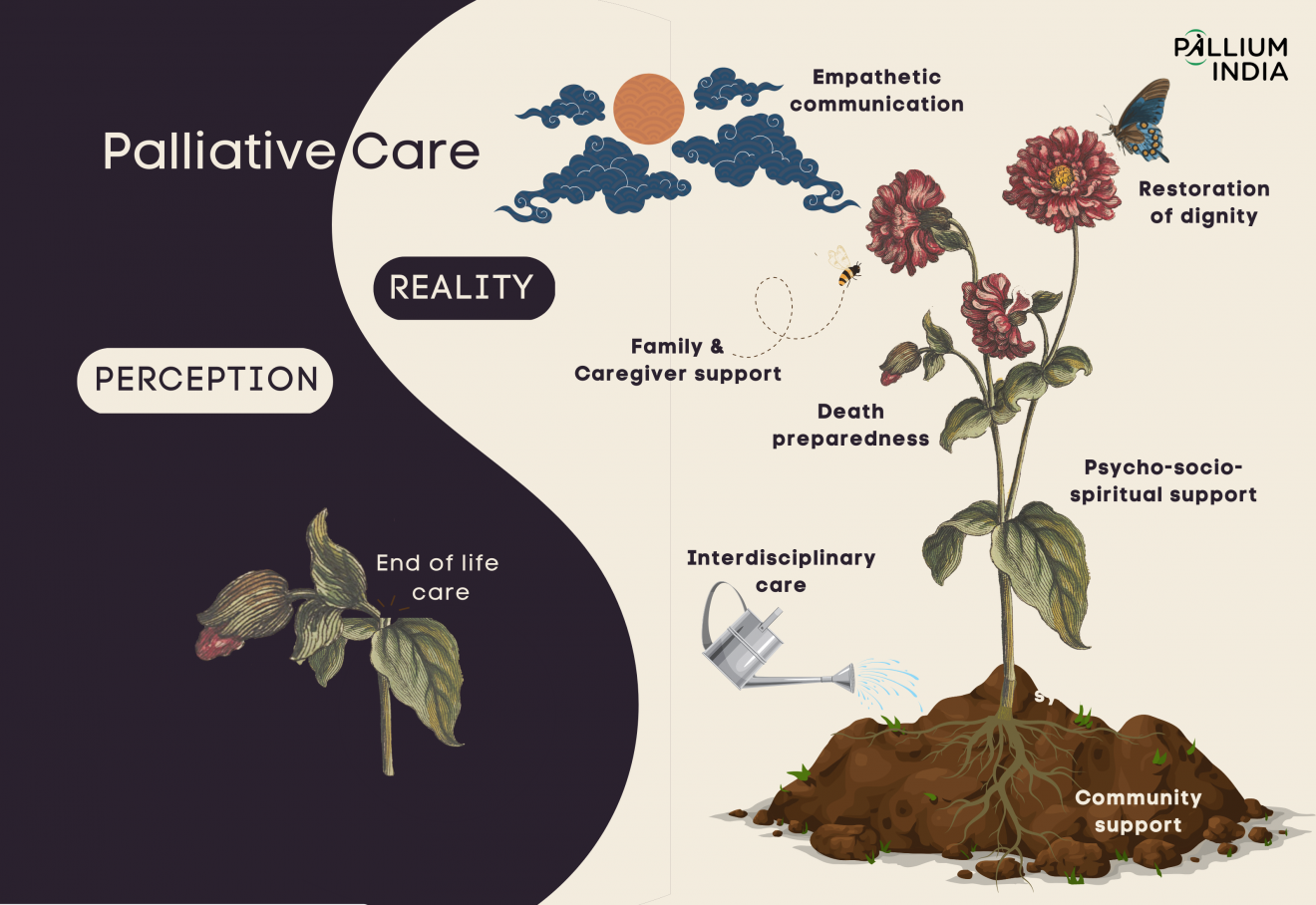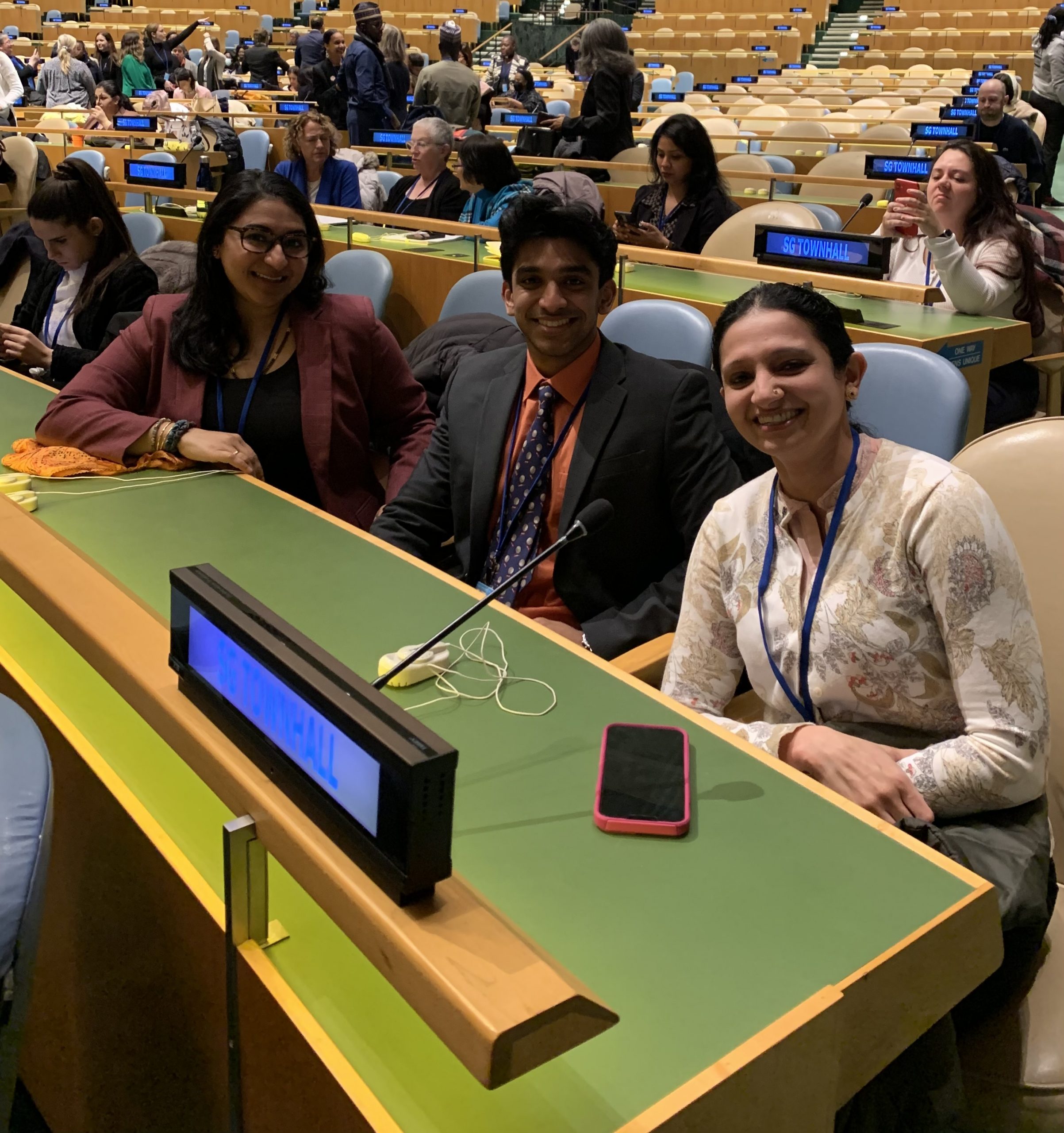About Palliative Care

What is Palliative Care?
Palliative care is treatment of serious health-related suffering (SHS). It includes management of pain and other symptoms and addresses psychological, social and spiritual suffering of patients and their families.
Like in most low or middle-income countries, the need for palliative care is greater in India than in the west simply because disease-specific treatment does not reach patients adequately or early enough.
Palliative Care also aims to reduce over all health-related suffering for patients and families living with life limiting or life threatening conditions which includes cancer and HIV, but also strokes, congenital anomalies, debilitating and progressive neurological conditions, substance abuse and spinal cord traumas too.
Palliative Care is not restricted to those at the End of Life. However, Palliative Care encourages conversations about the end of life. Palliative Care advocates for “a good death” which is pain-free and hopefully surrounded by loved ones, friends and family.
One need not wait till after all curative options are over to seek out Palliative Care. It is in fact recommended that Palliative Care be initiated at the time of diagnosis. Seeking Palliative Care is not a death sentence.
Why is Palliative Care relevant?
Like in most low-income or lower middle-income countries, the need for palliative care is greater in India than in the west simply because disease-specific treatment does not reach patients adequately or early enough.
We follow the same definition of palliative care as outlined by the WHO. But in our context, the phrase “life-threatening” is to be used keeping in mind life in the broader sense of the term and not just existence.
This means that we include many “life-limiting” diseases like paraplegia that we believe threaten life by limiting it to within 4 walls.
In the West, there is a parallel care system that takes care of people with such conditions, and provides physical, social, mental and spiritual support in the home setting; we do not have such a system. We bring them into the fold of Palliative Care.
1 in 5 suicides in India are committed by a person living with an advanced, chronic or life-limiting condition.
In 2017, a Lancet Commission report recommended that palliative care should focus on all aspects of serious health-related suffering.
Current Scenario in India
- Less than 2% of India’s 1.2 billion people have access to Palliative care.
- 1 in 5 suicides in India are committed by a person living with an advanced, chronic or life-limiting condition.
- Due to lack of basic social security the financial devastation of the family is far greater at the time of illness.
- While the lower income groups suffer greatly due to the above reason, paradoxically the affluent in our country are also marginalised, due to the absence of Palliative Care in healthcare institutions especially in the private sector.
- There are thousands of people who cannot access a health care facility because they are bed-bound or are elderly and living alone with no one to accompany them.
- An India population study in 2014 showed that in Kerala alone, around 1,70,000 people above the age of 60 live alone in single person households. Of these nearly 1,43,000 are women. There are socially and culturally marginalised groups – women, children, the LGBTQI community, people with mental health conditions, migrant populations, prisoners, geographically isolated groups. The list is a pretty long one.



Want to volunteer with us?
Our Work
Contact Details
Social Media
